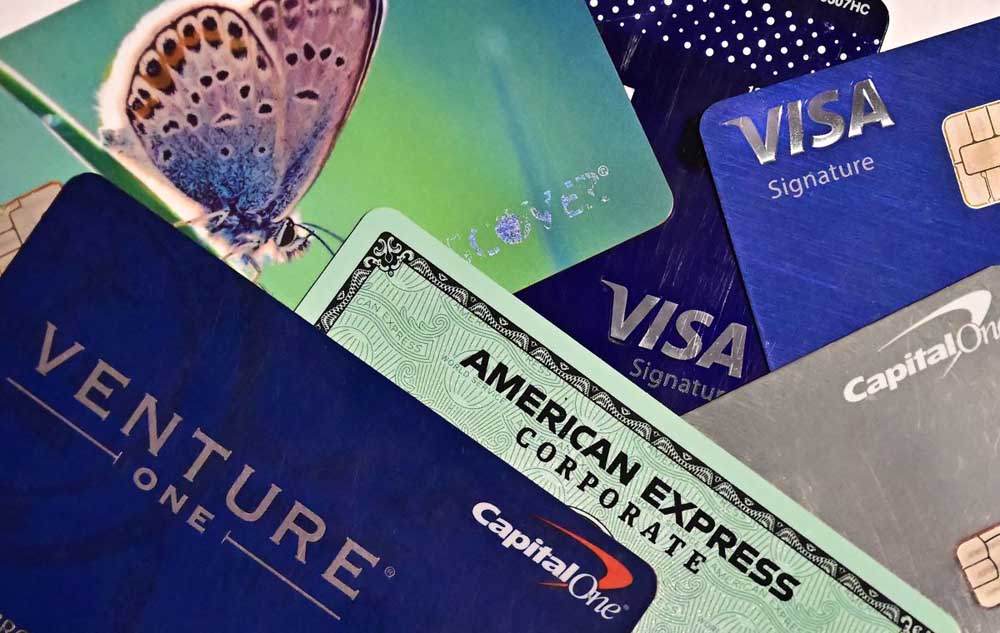Discover Financial tumbles as credit card issuer highlights key risk
Published 12:23 pm Thursday, January 18, 2024

- Credit card spending remains a key plank in the U.S. domestic growth story.
Discover Financial Services (DFS) – Get Free Report shares fell sharply lower Thursday, pulling the stock to the lowest levels since early December, after the credit card issuer highlighted a big potential risk over the coming year.
Discover, which is exiting the student loan business later this year and has transferred the servicing of its $10.5 billion portfolio to a third party, issues credit cards to what is considered a ‘prime’ customer base.
Borrowers typically need a FICO score north of 700 to qualify, and the group’s broader financial rate of BBB- from S&P Global places it just inside the threshold for an investment-grade lender.
The group, however, posted weaker-than-expected fourth quarter profits of $1.54 per share late Wednesday, nearly $1 shy of Street forecasts, even as revenues rose 12.8% to $4.12 billion.
Discover shares were last marked 10.2% lower on the session, the second-worst performer on the S&P 500, and changing hands at $97.60 each.

FREDERIC J. BROWN/Getty Images
The bigger issue in the earnings report, however, was Discover’s move to set aside around $1.9 billion, more than double the total from the same period in 2022, to cover the potential for credit card delinquencies.
In fact, the rate of card holders who are 30-days overdue on their minimum payment rose to 3.87% at the end of last year, the highest in more than a decade.
Overall net charge-offs, where Discover has written off the account as loss, rose nearly 2 percentage points from end-2022 levels to 4.11%.
Cautious spending outlook
The increase in both card delinquencies, as well as the anticipated costs for further defaults, paints a cautious picture for the U.S. consumer heading into the start of the year, and contrasts sharply with both a robust job market and solid spending trends.
December retail sales rose 5.6% from the same period in 2022, the Commerce Department reported Wednesday, with consumers laying out an overall total of $709.9 billion.
Last month’s unemployment rate was pegged at 3.7%, near the lowest in four decades, and some 8.8 million jobs remained unfilled over the month of November, according to data from the Bureau of Labor Statistics.
Discover’s chief financial officer John Greene told investors on a conference call Jan. 18 that the likely culprit is savings, which had swelled to record levels during the pandemic on the back of generous government stimulus but are now running dry.
He also noted the impact of elevated inflation rates, which continue to top year-on-year wage increases, as sapping overall spending power.
“You had a spending pattern with the consumers across the board that was reflecting kind of pent-up demand,” he added. “And as savings rate came down, the consumers needed to adjust their spending patterns. Some did successfully, some not.”
More personal finance:
- Here’s why it’s getting harder to get a loan from your bank
- 10 personal finance dos and don’ts from Morningstar
- Treat financial planning like getting your car inspected
Consumers remain the key plank in the U.S domestic growth story, and much of the Federal Reserve’s success in executing a soft-landing this year – where inflation is tamed without causing recession – will likely depend on their willingness to spend.
“Retail sales are part of consumer consumption (or spending) which makes up roughly two-thirds of GDP, and while the [December] figures are subject to revision, they bode well for continued economic growth,” said Elizabeth Renter, data analyst at NerdWallet.
“We know people don’t like higher prices, but the data indicates they’ve been largely able to adapt and carry on despite them,” she added.
Investors will need to track next week’s early updates from Visa (V) – Get Free Report and American Express (AXP) – Get Free Report closely to see if the two biggest credit card issuers are experiencing similar increases in delinquencies.
Last fall, Visa’s chief financial officer Chris Suh told investors consumer spending habits were stable over the group’s fiscal fourth quarter, which ended in September, adding that “our data did not indicate any behavior change across consumer segments.”
Rival American Express saw September quarter’s profits rise 33% to $3.30 per share, on revenues of $15.4 billion, and noted that travel demand and restaurant spending would likely remain firm into the end of the year.
Action Alerts PLUS offers expert portfolio guidance to help you make informed investing decisions. Sign up now.








